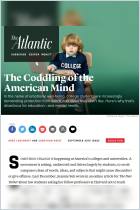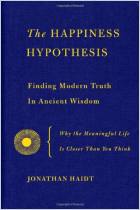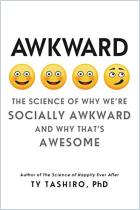
The Emotional Dog and Its Rational Tail
A Social Intuitionist Approach to Moral Judgment
Read or listen offline
Recommendation
In this groundbreaking article, social psychologist and business professor Jonathan Haidt offers the “social intuitionist model” as an alternative to “rationalist models of moral judgment.” His new model posits that moral judgments usually spring from intuitive perceptions – with reasoning emerging only after the fact. An overview of the history of the rational model, coupled with a four-part analysis of its weaknesses, makes it clear why Haidt’s alternative is plausible. getAbstract recommends Haidt’s perspectives to everyone interested in the subjects of social and moral psychology.
Take-Aways
About the Author
Jonathan Haidt is a social psychologist and professor of ethical leadership at New York University’s Stern School of Business. Haidt’s book The Righteous Mind was a New York Times bestseller.




















Comment on this summary or 开始讨论